Addiction can be a multifaceted condition, which means there is no one-size-fits-all type of rehabilitation. While options such as partial hospitalization, medication-assisted treatment and other outpatient rehabilitation work for some individuals, others may need a more intense level of treatment. Residential treatment for substance abuse may be the most fitting option in these situations.
Residential treatment involves live-in, clinically focused programs that offer a structured environment and around-the-clock care for substance abuse rehabilitation. What is residential treatment for addiction like, and who would benefit most from this level of care? Find out more about residential treatment, what to expect and how to find the right facility for you below.
What Is a Residential Treatment Center?
A residential treatment center is a facility that provides programs to clients that commit to live-in recovery programs for addiction. These centers can vary in terms of the setting, the services provided, and what types of clients they accept. For example, some treatment centers cater specifically to men, women or pregnant women. Likewise, some treatment centers are more like medical facilities, while others have a more residential setting.
The components of treatment offered vary from one facility to the next. Some places offer medically supervised detox, dual diagnosis treatment and medicated addiction support, for instance.
How Residential Treatment for Addiction Works
When you commit to a residential treatment program, you initially undergo a thorough evaluation. During this assessment, the treatment facility’s staff will assess your needs as a client and build a tailored treatment plan specifically for you. This treatment plan can include details such as:
- The type of substances you were using and how much
- What type of medical supervision you will need as a client
- Which types of therapy will work best for you (e.g., individual therapy, group therapy or behavioral therapy)
- Your expected duration of treatment (most programs require at least a 30-day commitment)
As a resident at a treatment facility, your day will be highly structured. Program components vary, but you can expect a daily routine that involves activities, meals and therapeutic sessions. The facility will be highly monitored and secure, which means you won’t be able to come and go freely or have unauthorized visitors.
Throughout your stay, you will have access to a support team to help you achieve sobriety. Additionally, once you have completed the recommended time in residential treatment, most facilities will help you make plans for aftercare support.
When Is a Residential Treatment Program for Drug Addiction Appropriate?
Many individuals benefit from the structure and 24/7 guidance provided in residential treatment. However, this more intense rehabilitation is better for certain people with a substance abuse disorder, such as individuals who:
- Have not achieved sobriety through an outpatient program previously
- Have a more complex type of issue, such as addiction to more than one substance or a co-occurring mental health disorder
- Live in an environment that does not provide ideal support for achieving sobriety
- Face greater risks, such as a high risk of overdose or relapse
- Feel they would respond better to around-the-clock support
Residential treatment essentially pulls a person from their everyday environment and immerses them in a wholly therapeutic atmosphere. Therefore, the individual must be able to commit to a live-in experience, which is not ideal for those who may have familial or career responsibilities.
What to Consider When Choosing a Residential Treatment Facility
Choosing the best residential rehab program makes all the difference in personal success and the experience. Before committing to a specific place, it is critical to consider several factors about the facility and the components of the program. A few important factors to consider include:
- Location: You may prefer options closer to home or away from home.
- Types of therapy available: Facilities may offer different types of therapy, such as cognitive behavioral therapy (CBT), psychotherapy, dual diagnosis care, group therapy and family therapy.
- Detox on-site: Some facilities offer on-site medical detox, while others do not.
- Credentials: Look at the credentials of the facility, as well as the credentials of the staff or primary therapists.
- Facility setting and amenities: Private or shared rooms, on-site dining options and amenities should all be taken into account.
- Visitation restrictions: Some facilities allow family visits, while others have greater visitation restrictions.
- Cost: Residential treatment is naturally the costliest type of rehabilitation, and costs can vary drastically from one place to another.
Find the Right Level of Addiction Treatment at Vanguard
For individuals that need more intensive treatment, residential substance abuse treatment can be a life-changing experience. At Vanguard Behavioral Health, our heart lies in helping individuals get the support they need with addiction and mental health challenges. We offer a range of options for treatment, including residential treatment centers in Albuquerque, NM, and Tucson, AZ.
Reach out to learn more about which treatment option could be the best for you or your loved one.








